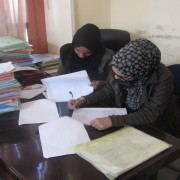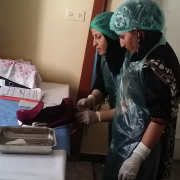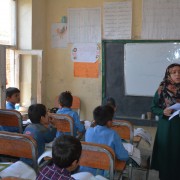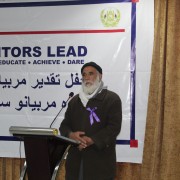Speeches Shim

Afghan women are historically under-represented in the criminal justice sector. According to the National Statistics and Information Authority, women accounted for only 10 percent of staff in the Attorney’s General Office in 2018.

Limited access to quality medical services makes pregnancy in Afghanistan quite risky. The Afghan Ministry of Public Health, with the support of the U.S. Agency for International Development (USAID), is reducing mother and child mortality rates by training midwives and teaching women family planning methods to space out their pregnancies.

Afghan teachers are learning new classroom management techniques and innovative approaches to communicating with students through the USAID-funded Afghan Children Read (ACR) Program. USAID supports the implementation of so-called Teacher Learning Circles in Kabul, Herat, Nangarhar and, Laghman provinces to raise the level of classroom instruction and thereby help students learn.

With support from USAID, Afghan traders signed contracts totaling more than $276 million for high-value agricultural products at trade shows held in India, the United Arab Emirates and Kazakhstan in 2018. Overseas buyers pay a premium for high-quality fruits, spices, nuts and vegetables. USAID’s Commercial Horticulture and Agricultural Marketing Program (CHAMP) and agricultural export program’s (Regional Agricultural Development Programs North and East and Promoting Value Chains West) helped Afghan agribusinesses participate in four international trade shows where they found those ready buyers.

In Afghanistan, male heads of household determine whether female family members can seek an education or pursue a career. According to the most recent Survey of the Afghan People, nearly 30 percent of Afghans do not believe women should be allowed to work outside the home. Kabir* disagrees. The father of seven daughters, he made sure all his children received a university education.

Comment
Make a general inquiry or suggest an improvement.